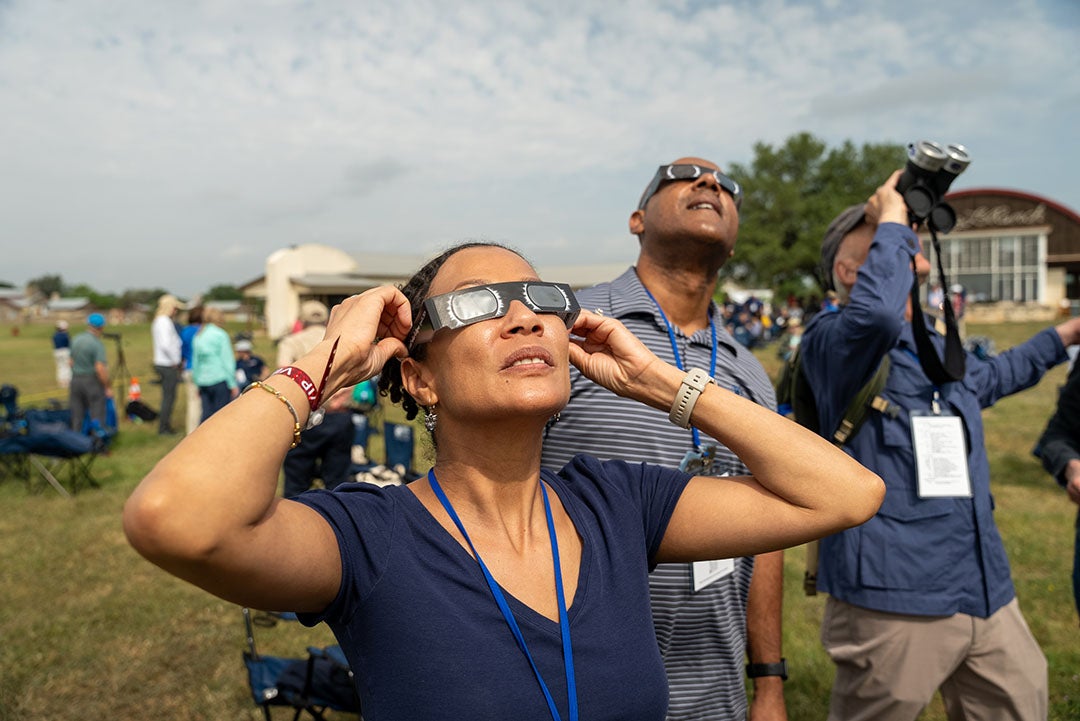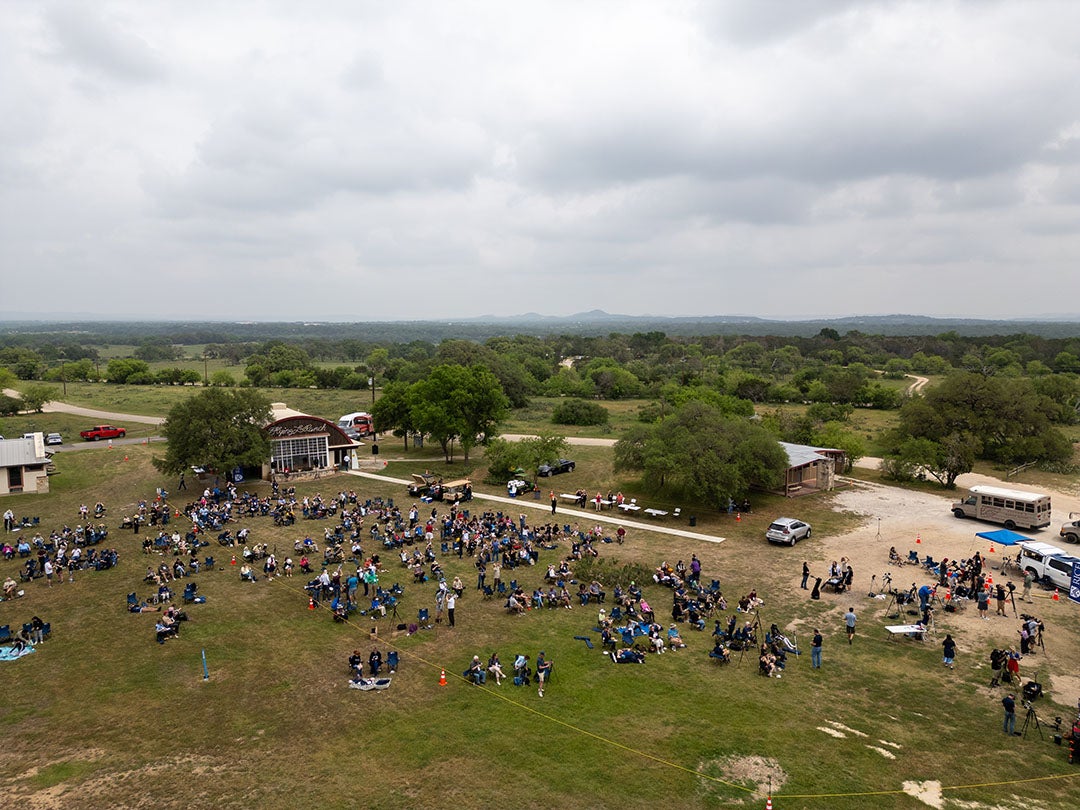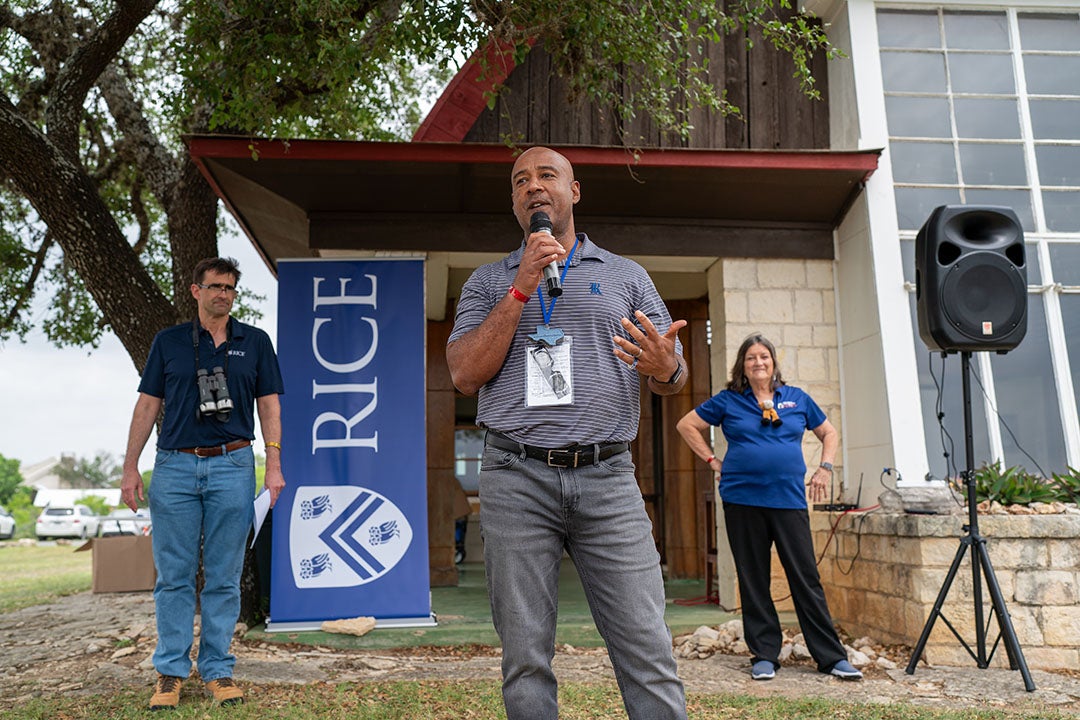Rice Faculty and Alumni Journey to Path of Total Solar Eclipse
As the moon completely eclipsed the sun April 8, more than 300 Rice University alumni, faculty and staff gathered on the lawn of the Flying L Ranch Resort in Bandera, Texas, to view the last total solar eclipse in the contiguous United States for the next two decades.
“I’ve been to many Rice events, but I haven’t been to an event that’s brought such a diverse group of people from all schools at Rice … all here to celebrate an incredible natural phenomenon,” Rice President Reginald DesRoches told the crowd.
Despite cloudy skies, the atmosphere was electric with anticipation. As the eclipse progressed towards totality, the crowd experienced the temperature drop by about 12 degrees as complete darkness engulfed the landscape.
“Not every eclipse is the same quality,” said physics and mathematics sophomore Jack Lee. “This one is going to last for, at maximum, about 4 minutes, 20 seconds. That’s a long time to be in the dark.”
The weekend trip to the Flying L Ranch, deemed the “Great Owl Eclipse,” was more than two years in the making. Attendees who traveled to Bandera from in state and beyond created lasting memories.
“It’s just amazing to gather all these Rice alumni and friends,” said Tom Killian, dean of the Wiess School of Natural Sciences. “As a school, we’re trying to promote what we do and build strong relationships with alumni, so an event like this is just an amazing opportunity.”
Scott Solomon, associate teaching professor of biosciences, described the experience as “totally surreal,” emphasizing the magic of witnessing the eclipse together as a community.
Renowned alumnus and NASA astronaut James Newman echoed Solomon’s sentiment, calling it a “fantastic opportunity” to celebrate Rice’s heritage as a community.
For incoming freshman Bethany Elliott, the event solidified her decision to attend Rice.
“Seeing all this and meeting a lot of new people that I can immediately befriend — we have a lot of the same interests — solidifies that Rice is definitely the place for me,” Elliott said. “All of this right here … these are my people.”
In addition to marveling at the eclipse, guests had the chance to engage in astronomy and natural phenomena activities. Rice professors led nature walks, delivered eclipse safety measures and conducted research on the ionosphere using GPS.
The Rice faculty present at Bandera included Patricia Reiff, professor of physics and astronomy, who played a key role in organizing the weekend; Cin-Ty Lee, the Harry Carothers Wiess Professor of Geology and professor of Earth, environmental and planetary sciences; Stephen Bradshaw, professor of physics and astronomy; and Kirsten Siebach, assistant professor of Earth, environmental and planetary sciences.
Carolyn Sumners, curator of astronomy at the Houston Museum of Natural Sciences, and Lika Guhathakurta, a NASA astrophysicist, were also on hand.




